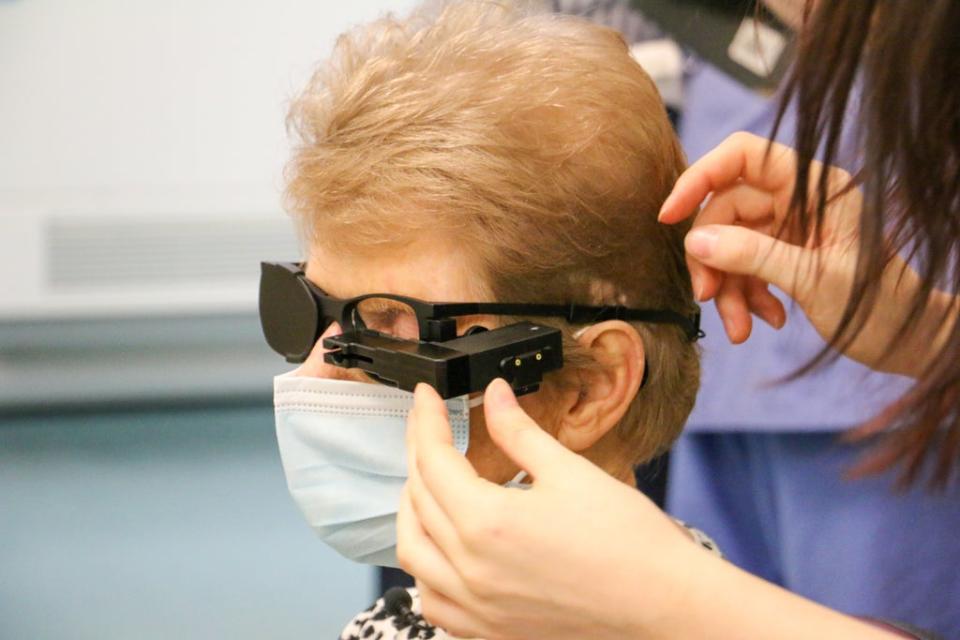Woman, 88, becomes first in UK to receive ‘bionic eye implant’

An 88-year-old woman has become the first person in the UK to receive a “revolutionary” bionic implant.
The grandmother, from Dagenham, lost sight in her left eye after suffering from geographic atrophy.
The condition is the most common form of dry age-related macular degeneration (AMD) and affects millions worldwide.
She told of her joy after the breakthrough implant allowed her to detect signals for the first time since going blind.
“Losing the sight in my left eye through dry AMD has stopped me from doing the things I love, like gardening, playing indoor bowls and painting with watercolours,” the unidentified woman said.
“I am thrilled to be the first to have this implant, excited at the prospect of enjoying my hobbies again and I truly hope that many others will benefit from this too.”
During the surgery at Moorfields Eye Hospital, a 2mm wide microchip was inserted beneath the centre of her retina.
The patient then wore special glasses which contained a video camera linked to another camera attached to her waistband.
The chip captures the video provided by the glasses, and in turn transmits this to the computer, which uses artificial intelligence algorithms to process information and guide the focus of the glasses.
Finally, the glasses project this image as an infrared beam back through the eye to the chip, which transforms this into an electrical signal that travels back through the retina cells and into the brain.
The brain then interprets this signal as if it were natural vision.
The research is supported by the NIHR Biomedical Research Centre at Moorfields Eye Hospital NHS Foundation Trust and the UCL Institute of Ophthalmology.
The Prima System device used in this operation was developed by Pixium Vision in France.
Mahi Muqit, consultant vitreoretinal surgeon at Moorfields Eye Hospital, said the device “offers hope” to people suffering loss of vision due to dry AMD.
He said: “This groundbreaking device offers the hope of restoration of sight to people suffering vision loss due to dry AMD.
“The success of this operation, and the evidence gathered through this clinical study, will provide the evidence to determine the true potential of this treatment.”

 Yahoo Sport
Yahoo Sport 




































